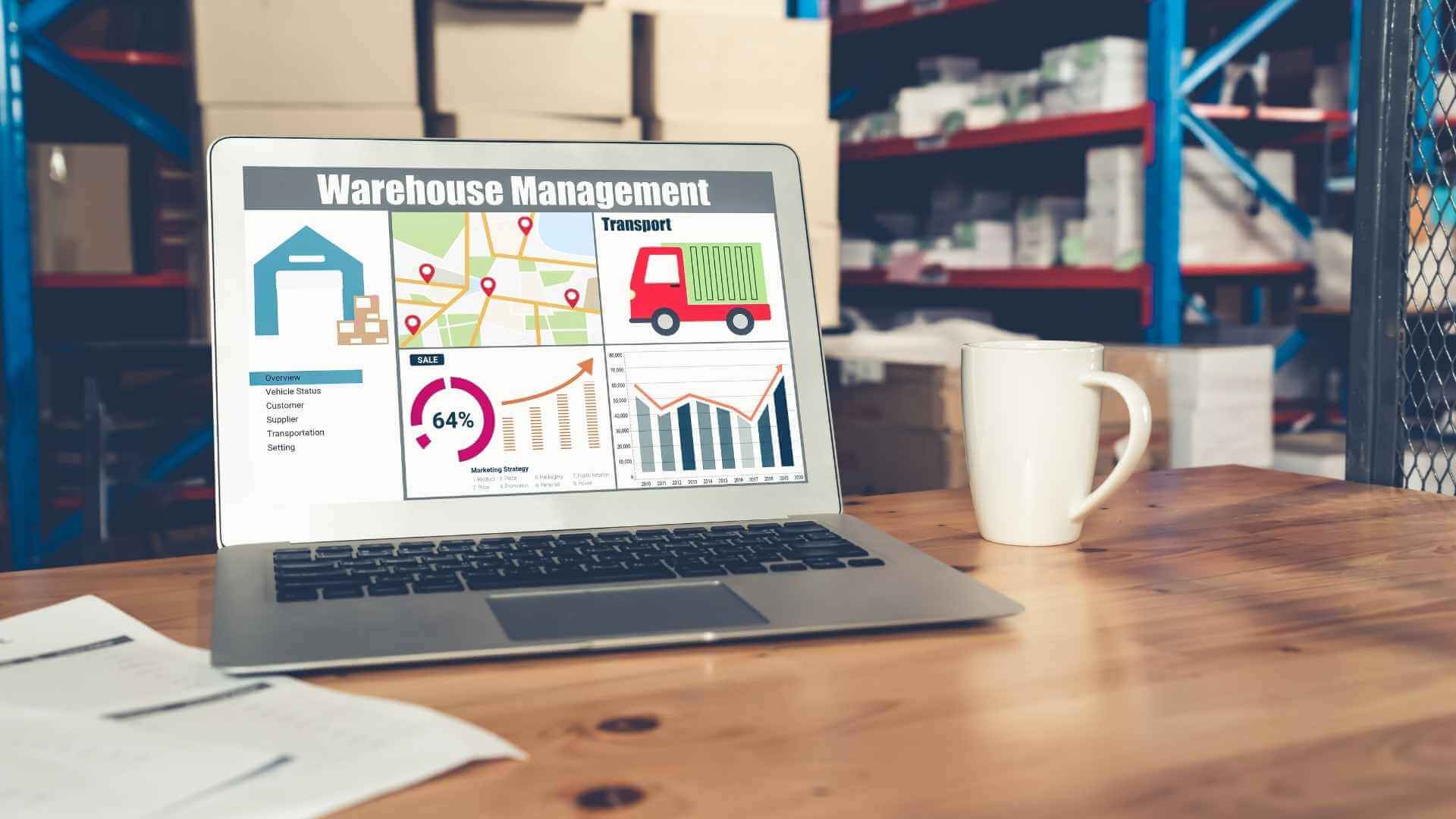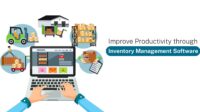Warehouse Management Software – In today’s modern world, almost everything is available online. We buy items from shopping sites, pay for the items from anywhere and if we don’t like the product we return it from anywhere.
Hence when we purchase a product and return it, this data should get reflected immediately. This, in turn, is today’s need for businesses. In order to fulfill this need, we will require the software which will be able to keep a track of all the warehouse operations (Dispatching items, tracking the shipment and sometimes taking it to return).
Warehouse Management System
Warehouse Management Software Systems (WMS) help us in managing all these operations. Warehouse management systems help organizations in developing their competitive edge. The use of WMS will minimize the labor charges and thereby improve customer services.
Cloud-based WMS will give us visibility to the real-time data, which will show the status of the inventory. If we have the internet, we will be able to see it on computers, phones, tablets, etc.
The warehouse management system starts keeping a track of the material/goods/products once it reaches the warehouse. WMS will track the item until it reaches the end-customer.
If it is returned by the customer, WMS will again start tracking, until it reaches another end-customer. Hence, the functions of WMS include receiving goods, packing it, dispatching goods, tracking the shipment and updating its information. All these functions together can be called a supply chain.
Types of WMS:
For 3PL businesses, there can be three types of WMS.
3PL stands for third-party logistics. The first type is Standalone Warehouse Management, the Second type is Supply Chain Execution Modules and the Third type is Integrated ERP.
Enlisted below are some pointers that you must consider while choosing the WMS.
Function: Different WMS has different functions. Some WMS are designed for specific types of businesses. Hence, identify your needs and choose accordingly.
Cost: After considering the functions for your WMS, the cost is the second important factor while choosing a WMS as it involves budget. The cost of WMS depends on its complexity or the functions that it offers.
Customer Needs: If you are using any WMS currently then you must know its loopholes.
Based on it, you can identify the customer needs and choose the functions of WMS so that you will be able to give the best service to your customers. This point is also about selecting/considering functions of the WMS but from the customer’s point of view.
Warehouse Size: As the warehouse-size increases, the complexity of WMS will increase as WMS will have to provide more functions for larger warehouses. Hence depending on the size of the warehouse, you will have to choose the functions. Thus this point is also about selecting functions but from the warehouse point of view.
Top 10 Warehouse Management Systems
Enlisted below are the best Warehouse Management Systems that are available in the market.
1. Sortly
Sortly is undeniably one of the best photo-based, visual warehouse management software out there for small businesses. With this software, you get a fully customizable system that can track any item, or detail pertaining to it, across various locations.
Sortly users can add custom fields, receipts and multiple images to each item to make tracking assets easier, regardless of which warehouse the item is located in. Users also enjoy the privilege of creating and printing QR labels and barcodes, which can be scanned using Sortly’s own QR code scanner from within its mobile app.
Features:
- Scan and update items using QR labels and barcodes.
- Create automated alerts to track stock levels
- Assign user roles and manage access permissions
- Track inventory and user activity
- Create custom CSV and PDF reports.
Pros:
- Very easy to use, no technical knowledge required.
- Cross platform software that works on almost all types of devices.
- Clean and comprehensive user dashboard.
- Easily generate personalized QR labels and barcodes.
- A free version is available.
Cons:
- No integrations
- Only help center and email support will be provided unless you opt for their custom plan.
Price: Free for 100 entries, Advanced – $25/month for 1000 entries, Ultra-$59/month for unlimited entries. Custom plans are also available upon contact.
2. NetSuite WMS
NetSuite WMS helps in streamlining warehouse and manufacturing operations. It helps the users in performing major functions of the warehouse like receiving, storing and shipping goods. NetSuite is the product of Oracle.
Tool features:
- Mobile RF barcode scanning.
- Strategy definition for putting away and picking up. There are three benefits of this feature i.e. Mobile Receiving, Mobile Picking, and Mobile Cycle Counting.
- Task Management
- Returns authorization receipt
- Cycle count plans
- There are also other features like Real-time data, Order management, barcode tracking, billing, inventory management, shipping management, workforce and load management, warehouse map, purchasing, etc.
Pros:
- It is simple and so easy to use.
- The company offers a guarantee.
- The contact information is clearly visible.
- It has third-party plugins.
- Wireless warehousing.
Cons: It is not an effective ERP. It provides some ERP features but they are not as per the expectations.
Tool Cost/Plan Details: Contact them for the price.
3. Maropost
Maropost is a platform that can not only automate your inventory management process but also streamline the management of your orders. The platform distinguishes itself from its competitors by facilitating centralized management of multiple online stores.
Simply put, you can rely on this platform to manage multiple stores from a single control panel. You basically get a bird’s eye of your entire online marketplace empire. You can seamlessly manage all your product listings, orders, and information pertaining to customers from a single, intuitive platform.
Features:
- Manage Multiple Sales Channels from one place
- Build Custom Online Store
- Streamline Customer Management
- Set Pricing Rules
- Sync Shipping Tracking Data
Pros:
- User-friendly interface
- Centralized solution to multiple eCommerce-related functions
- In-depth channel and inventory listing
- Flexible pricing
Cons:
- May not be ideal for small businesses
Price: Maropost’s commerce cloud comes with a 14-day free trial and 4 pricing plans. Its essential plan costs $71/month. Its essential plus and professional plans cost $179/month and $224/month respectively. A custom enterprise plan is also available.
4. Fishbowl Inventory
Fishbowl Inventory is a software company found by David K Williams with its headquarters in Orem, Utah, US. This system is suitable for any sized organization. This company provides manufacturing and inventory management solutions for QuickBooks.
Tool features:
- It provides integration with QuickBooks.
- Reporting
- Sales and Purchasing
- Order Management
- Multiple Locations
- Multi-Currency
- Shipping
- Time and Labor
Pros:
- It provides a free trial.
- Sales order and purchase order can be created in any currency.
- Fishbowl provides many plugin products.
Cons:
- It supports English language only.
- It doesn’t support native shipping and e-commerce module.
- On-premise installation is not available.
Tool Cost/Plan Details: Starts from $4,395/user annually.
5. 3PL Warehouse Manager
It is a cloud-based system provided by 3PL Central.
It has a modern user interface and intelligent workflow capabilities. 3PL Central was founded by John Watkins and Nancy Rohman in 2006. At that time, they were running/having their own warehouse. Thus, this system was actually designed by warehouse management experts.
Tool Features:
- Easy expansion
- Seamless integration
- Accurate billing
- Mobile barcode scanning
- Centralized management of the customers, multiple locations, and multiple warehouses.
- Accurate scanning, packing and verifying of the shipments.
- You can manage inventory and orders from anywhere and at any time.
- It provides support for integration with the EDI providers.
Pros:
- It is easy to expand the system or upgrade the software.
- It is easy to use.
- You can access and handle data from anywhere and at any time.
Cons:
- Training is required to use this system. Especially the billing section is very confusing.
- This is for small warehouses/organizations.
Tool Cost/Plan Details: Contact the company for its pricing information.
6. Softeon
Softeon provides innovative solutions for the supply chain. Headquarters of Softeon is in the USA. Softeon Warehouse Management System is a cloud-based system.
Tool Features:
- It is a web-native system.
- Handles complex inventory management functions.
- Scalable architecture
- Order management
- Productivity tracking
- Task management
- Seamless integration to automate systems of material handling.
Pros:
- Softeon provides very good customer support.
- It can process high volumes of orders.
- This system has reduced the chances that it will require ongoing support.
- It has also reduced the cost.
Cons:
- Implementation processes are not as per the expectations.
- The tool doesn’t provide billing management functions.
- The system is not compatible with Mac OS and Linux OS.
Tool Cost/Plan Details: Contact the company for its pricing information.
7. Infor SCM
Infor SCM was launched in 2002 under the name Agilsys and it started with 1300 customers. Infor SCM tries to give a solution for relevant problems of your industry. Infor is a multinational company whose headquarter is in New York City, US.
Tool Features:
- Specific to a warehouse, this product offers many features like core and advanced warehouse capabilities, 3D visualization in WMS, transportation execution, labor planning, inventory management, space utilization, etc.
- Specific to transportation, it can manage multiple stop transportation. It can also monitor items/products in transit.
- It provides the feature of centralized shipment tracking.
- For finance-related features, it supports early payment, financing before and after exporting, third party fund programs and financing based on performance.
- Along with these, it provides many more features for Supply chain planning, Sales & operations planning, supply chain visibility, etc.
Pros:
- It provides support for industry-specific functions.
- It offers assistance for purchasing processes.
Cons:
- You cannot export reports and it doesn’t provide graphical reports as well.
- It doesn’t have a facility for document management.
- Its inventory management feature cannot be that strong as there is no support for material requirements planning and automatic stock-out report capability.
Tool Cost/Plan Details: Contact the company for its pricing information.
8. HighJump
Highjump provides solutions for warehouse management as per the market needs. They make sure that their solutions are future-proof and mobile-enabled.
Tool Features:
- It is a cloud-based system.
- Yard Management
- Supports multi-client operations.
- Labor management
- Omni channel fulfillment
- ERP Integrations.
- Order picking functionality
Pros:
- The system is robust.
- The company enhances its products according to market needs and customer feedback.
Cons:
- Reporting functionality is not available.
- No card processing capability.
Tool Cost/Plan Details: Contact the company for its pricing information.
9. Manhattan Associates
Manhattan Associates was launched in 1990 with its headquarters in Atlanta, Georgia, US. It has more than 1200 customers and it has won many awards for its solutions.
Tool Features:
- Integration with Material Handling Equipment.
- It provides support for mobile handheld devices.
- Appointment Scheduling
- Guards Check-in and Check-out.
- Dock Door Management
- Yard management
- Labor management
- Cross-docking
- Quality audit and
- Vendor performance
Pros:
- It can capture information automatically as it provides support for handheld devices and Material Handling Equipment.
- It provides more security options.
Cons: It will be expensive if you want customization.
Tool Cost/Plan Details: Contact the company for its pricing information.
10. TECSYS WMS
TECSYS was launched in 1983 with its headquarters in Montreal, Canada. It has more than 600 customers. TECSYS WMS has got the Technology Innovation Leadership Award. It is a cloud-based system and this system is best for medium and large organizations.
Tool Features:
- This system provides multiple pick methods like the wave, zone, cluster, etc.
- Dock and cross-dock management.
- Dynamic slotting
- Services – Special production, kitting & custom labeling, expiry date, lot tracking, and serial numbering.
- It provides advanced functionalities for packing, shipping, picking, and many more services.
- Transportation Management.
Pros:
- The system is robust and scalable.
- It provides a customizable workflow.
- The system can be integrated with various CRM and ERP systems
Cons:
- The payment processing facility is not available.
- Absence of the feature to monitor supply chain and analytics.
- No support for multi-location.
Tool Cost/Plan Details: Starts from $50,000. This is a one-time license fee.
Conclusion
While concluding the article on Warehouse Management Software Systems, we can say that Oracle’s NetSuite WMS offers all the required features including wireless warehousing with a guarantee. If security is your concern then Manhattan Associates is the best option.
If you want customization in your workflow then TECSYS WMS will work the best. Astro WMS will be the best option if you want any specific functionality to plugin to your system.




